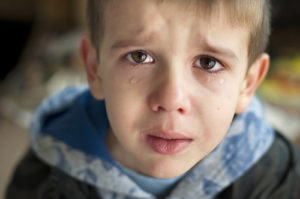7 Reasons Why Your Kids Misbehave (there are many more!)
November 27, 2017Children are all individuals, and while some are generally compliant, others make misbehaviour and defiance almost an art form. All children misbehave and as parents we usually accept this as part of their growing up, which of course it is. But we also ask ourselves why on earth they do it? Well, here are a few of the usual reasons and if as parents we can understand these then while we may never be able to wipe out misbehaviour, and who would want to really, it is part of them becoming individuals and learning about the world, we may be able to reduce it to manageable proportions so it doesn’t completely exhaust us.
Our Expectations Are Too High
Children all develop at different rates and the simple fact is that sometimes their lack of maturity or skills means they just can’t quite comply. Asking them to stay sitting quietly at a table through a fairly long meal, or sit on a carpet at school for a long time, is sometimes just too hard, they fidget and wiggle and literally can’t sit still. Some children of the same age may be able to but what we know is that while development follows a similar patter there can be a wide variation in the age at which children achieve certain skills. If children regularly misbehave in particular scenarios think for a minute whether they can actually do what you are asking them to and if you aren’t certain then think about ways that you can help them behave in the way you want, providing a distraction or activity while they are expected to sit still or a allow them a certain amount of movement periodically.
They Don’t Understand What They Should be Doing
Sometimes children don’t actually understand our requests or don’t hear them because they are engrossed in something else so be very clear about what you do expect and make sure that they understand what that means in terms of behaviour. The other day I was in a shop and a dad turned to his preschool child who was skipping about near some big tins of chocolates and told the child to stop ‘messing about’. The child stopped skipping and started walking backwards slowly, knocking over one of the tins. Dad reminded child that he asked them to stop mesing about and the chid reposnded saying theat they had stopped skipping! Be careful to tell them exactly what you want them to do. In this child’s head skipping was messing around walking backwards wasn’t. Instructions like ‘behave’ or ‘be good’ or ‘settle down’ may have a very precise meaning for adults but maybe not for children. Make sure the child understands – especially if issuing several instructions at once, like ‘go upstairs, brush your teeth and bring down your hat,’ . That is a lot for a child to absorb and follow so get them to repeat back to you what they have to do.
We Give Inconsistent Messages
All parents are human, we have good and bad days sometimes we are prepared to ignore a particular behaviour then at other times we clamp down. If there is more than one person fulfilling a parenting role then there may be differences between what is expected, or accepted in terms of behaviour. This can all be a bit confusing for either a child or teenager. A good example might be an older child’s attempt at ‘cheeky’ humour which might be met with a laugh on one occasion or a sanction on another. Ensuring that there is a general consistency among all adults about what is and isnt acceptable can definitely help.
Life is one Big Game
There is a lot we can learn from our children, they are in the moment, find almost everything interesting and can turn everything into a game. You are trying to get them ready for school but they hide their book bag, or you are trying to get them into the bath and they run away. They are certainly not following instructions but their purpose is to play rather than necessarily misbehave. We don’t want to squash that desire so often it’s helpful to beat them at their own game and introduce ‘fun’ into everyday tasks – timing them for example as they get ready.
They Crave Your Attention
Children have an insatiable appetite for attention from the grown-ups they love, are attached to and have a connection with. In fact often the quiet, remote, uncommunicative teenagers actually need a lot of attention too, though don’t always go about getting it in the best way. Children crave attention so much that even negative attention is better than no attention. As adults sometimes we get sucked into a negative cycle where, if the child is behaving well we use the time to get on with things but of course as soon as they start doing something they shouldn’t then they will get our attention. Once as a parent we recognise that it is relatively easy to switch that cycle around and catch them when they are good and make sure they get our attention then.
Your Mood Impacts Upon Them
Many children and young people are highly sensitive to adults’ emotional state. Even babies and toddlers can pick up on our stress, tension or unhappiness. If they sense those emotions and remember our children do tend to know us well, it can unnerve them and they may respond negatively as they are unsure what the stress or tension means. If you are aware that you are stressed and can explain it in simple terms, reassuring them that you still love them and that everything will be alight, this may help.
They are Testing Boundaries
Children and teenagers are constantly learning and part of that is learning what the limits are. It is an entirely normal part of development to test those limits and your response to that challenge. Try aiming for consistency and flexibility. Individual situations can be handled flexibly and it is ok to change your mind but there needs to be a consistency as well, so only warn about things you are actually prepared to deliver on.
They Simply Don’t Want to do What You Ask
I guess lots of us don’t want to leap out of bed on a Monday morning and some of us would rather skip the peas and get to the brownies! Children are just the same and teenagers are trying to work out how much independence they really have, usually wanting a bit more than they can handle. So as it may already be a conflict for them, try not to turn it into a head on confrontation. Instead turn it into a game, add an incentive, or give a little bit of wiggle room.
Parenting is a tough job especially when children don’t do what we ask but trying to understand why they are misbehaving may help you to find more effective strategies that leave you less drained bith physically and emotionally.





